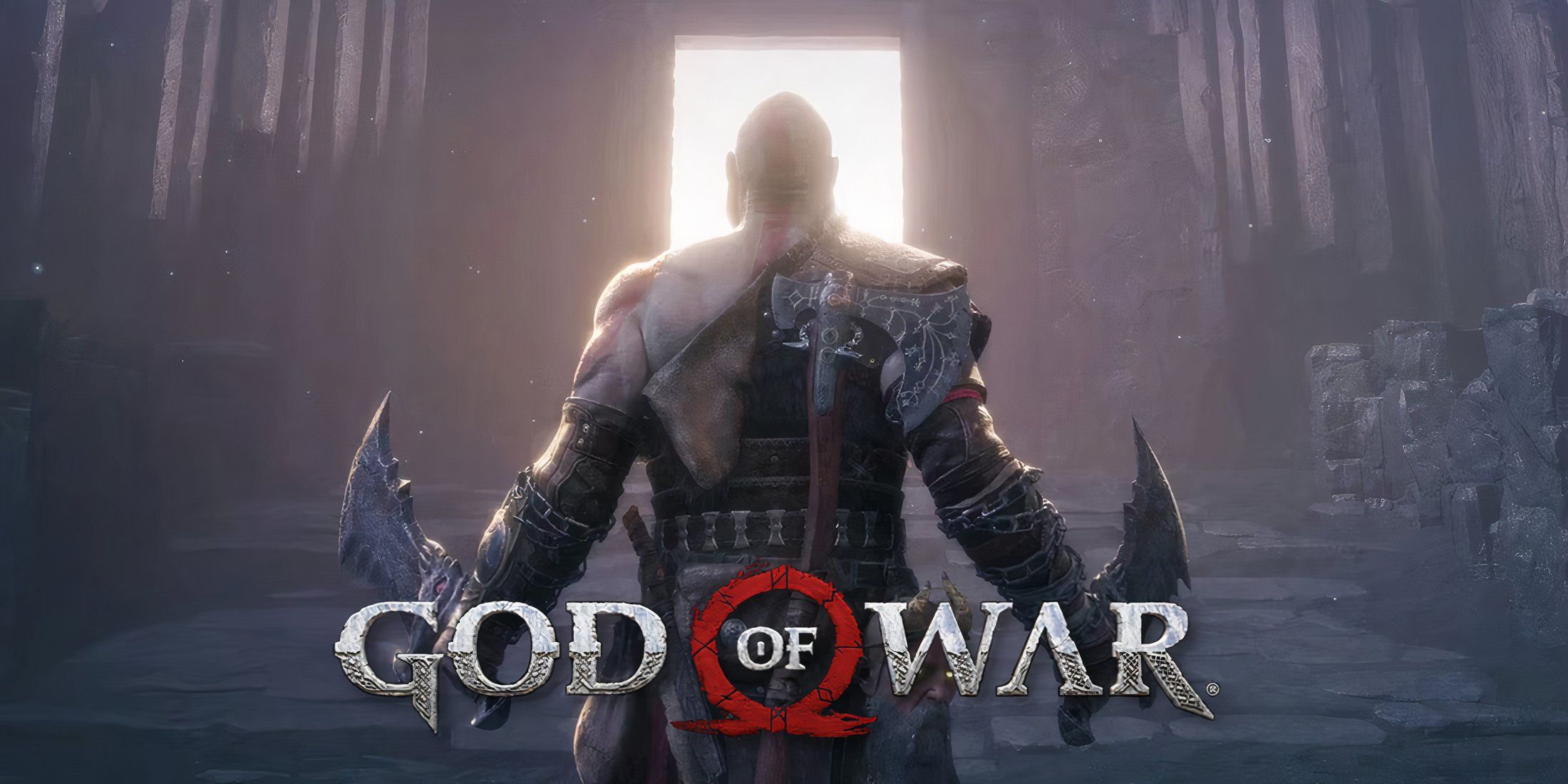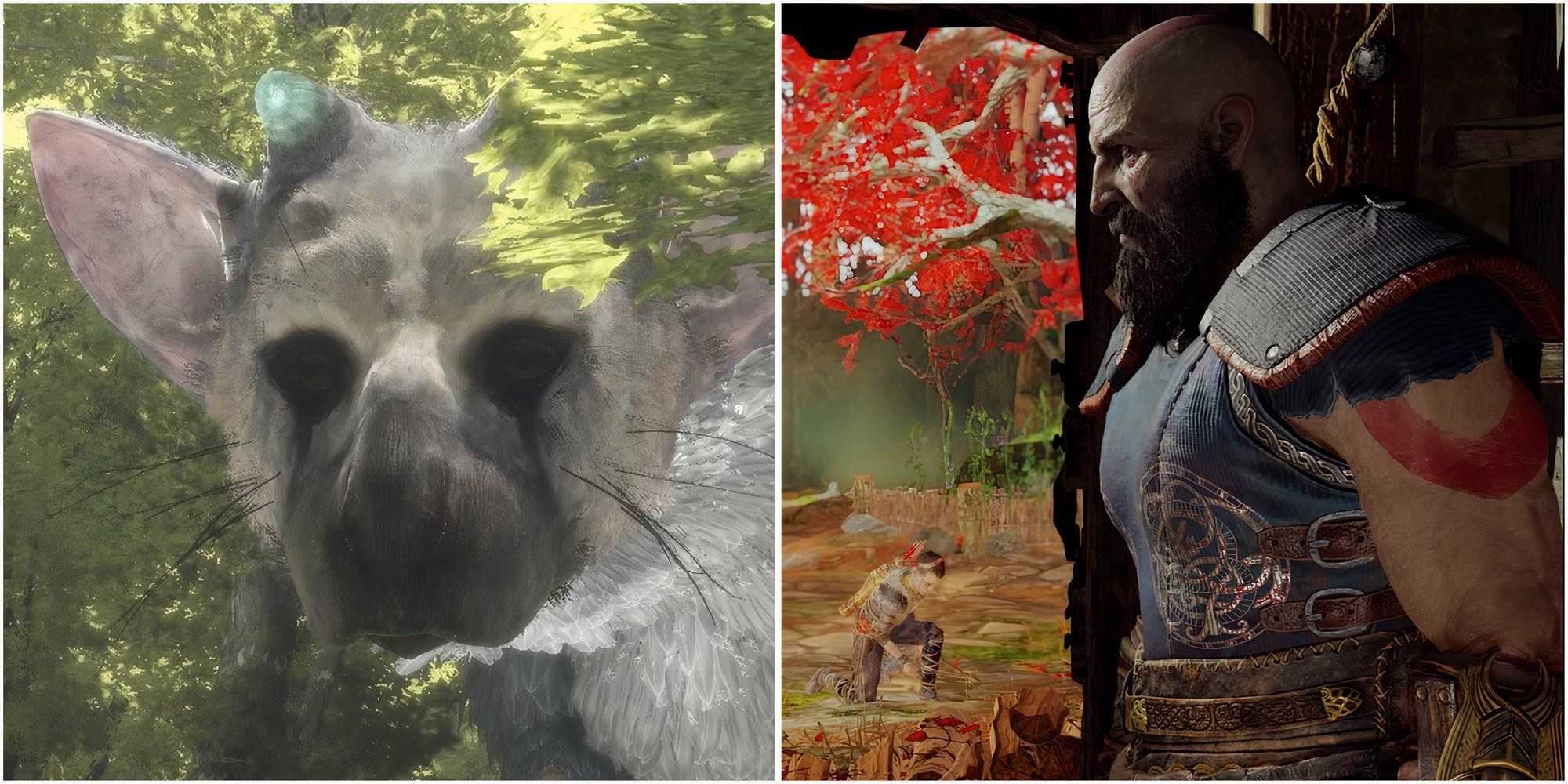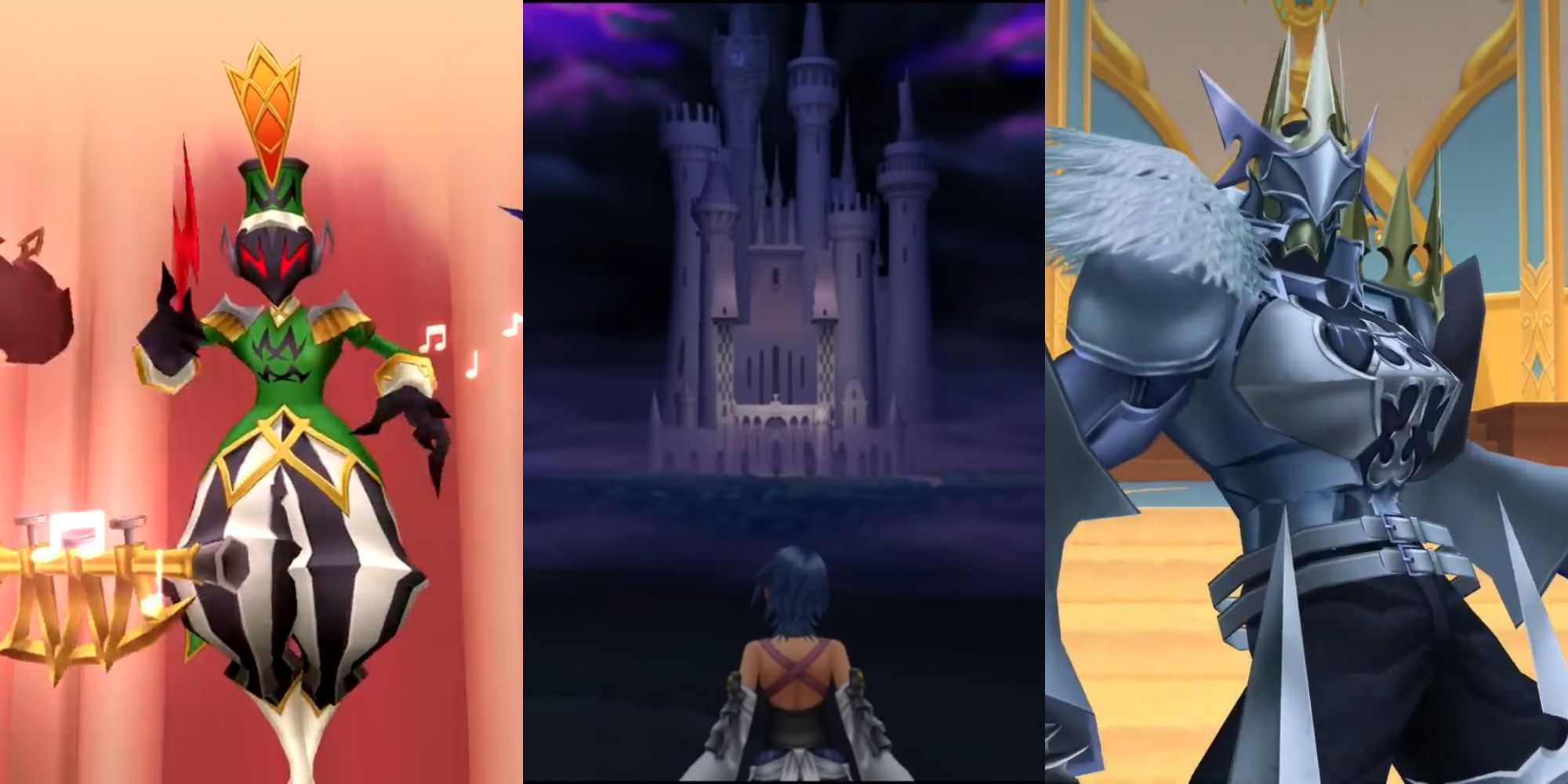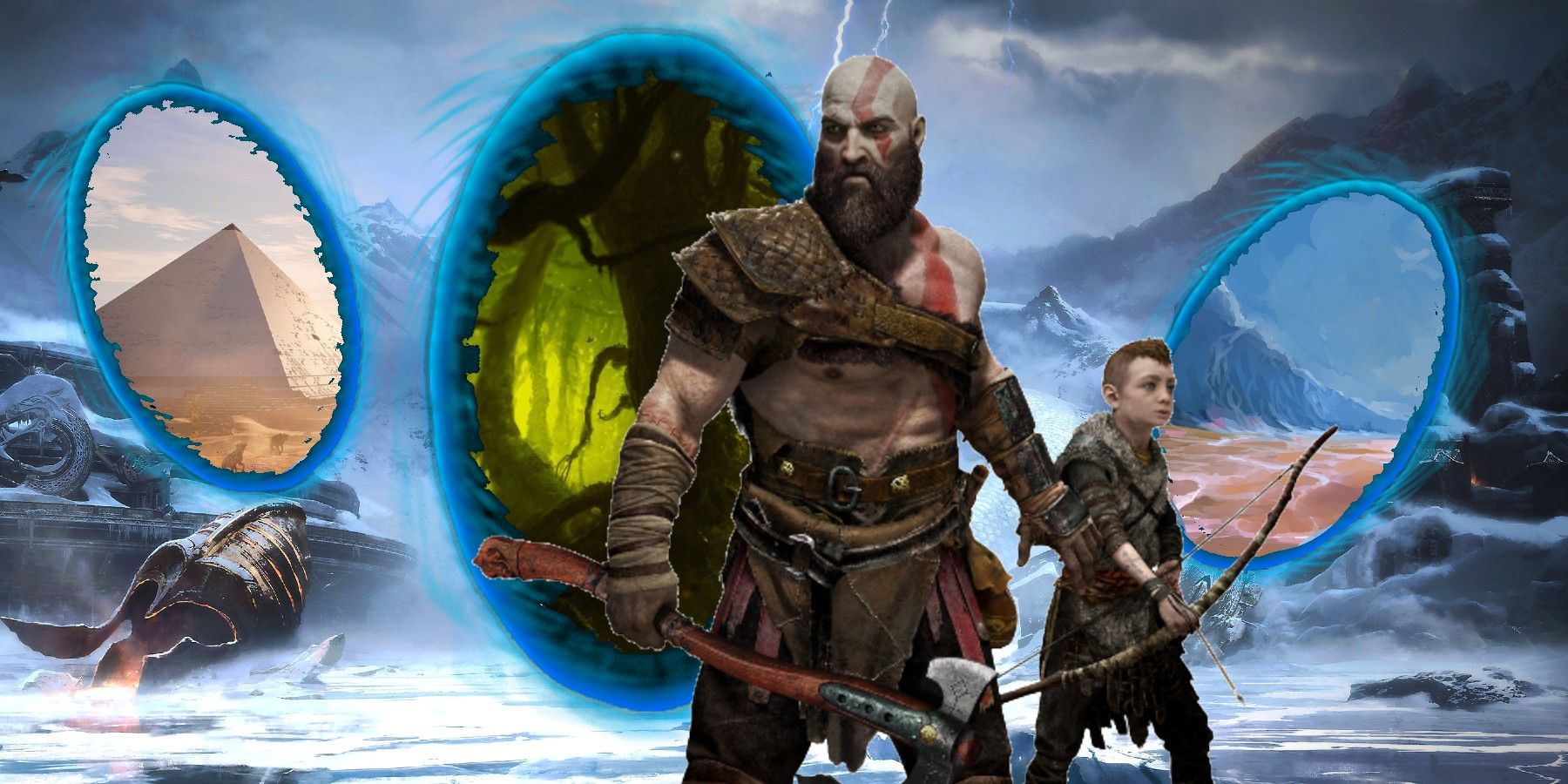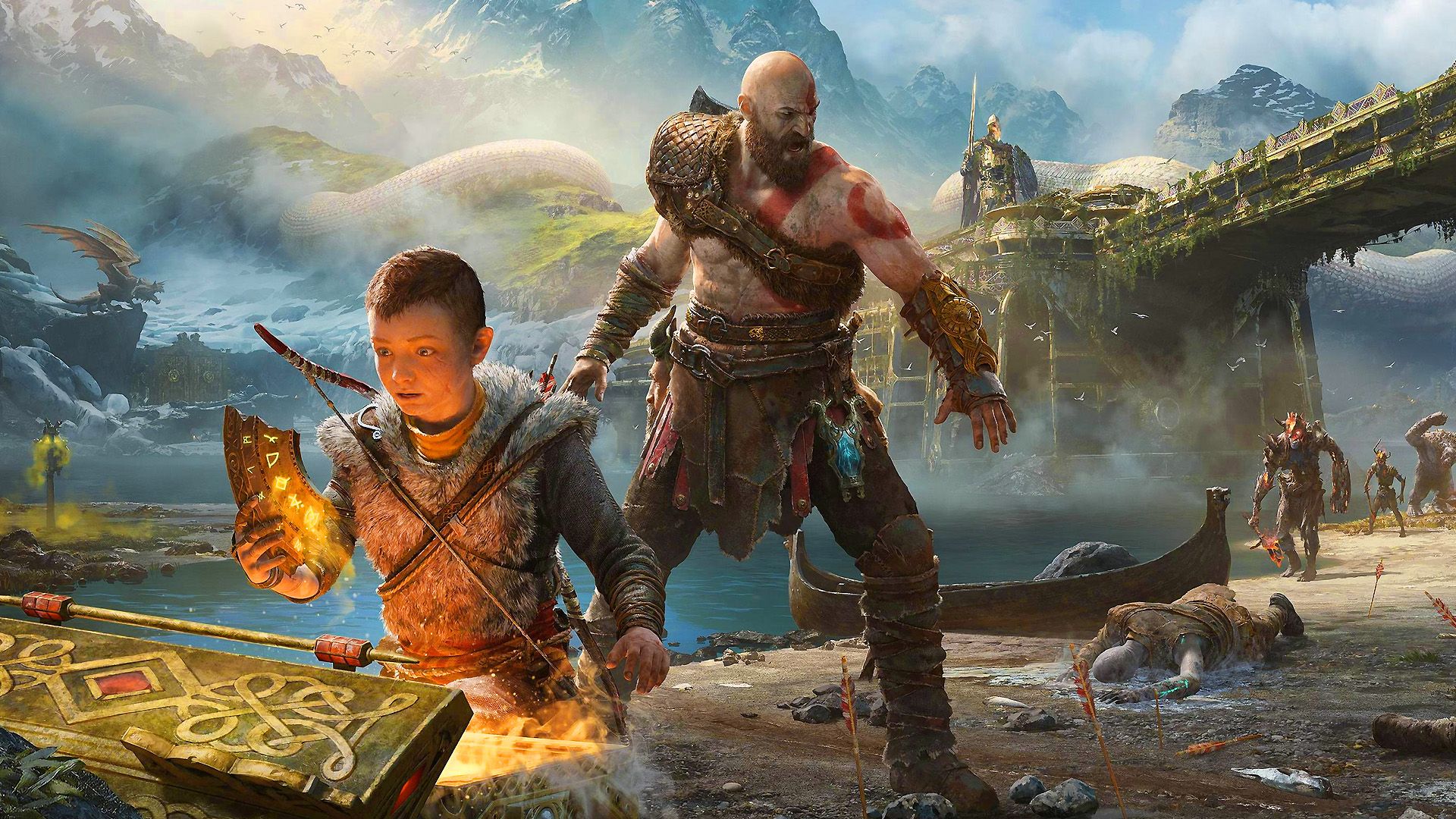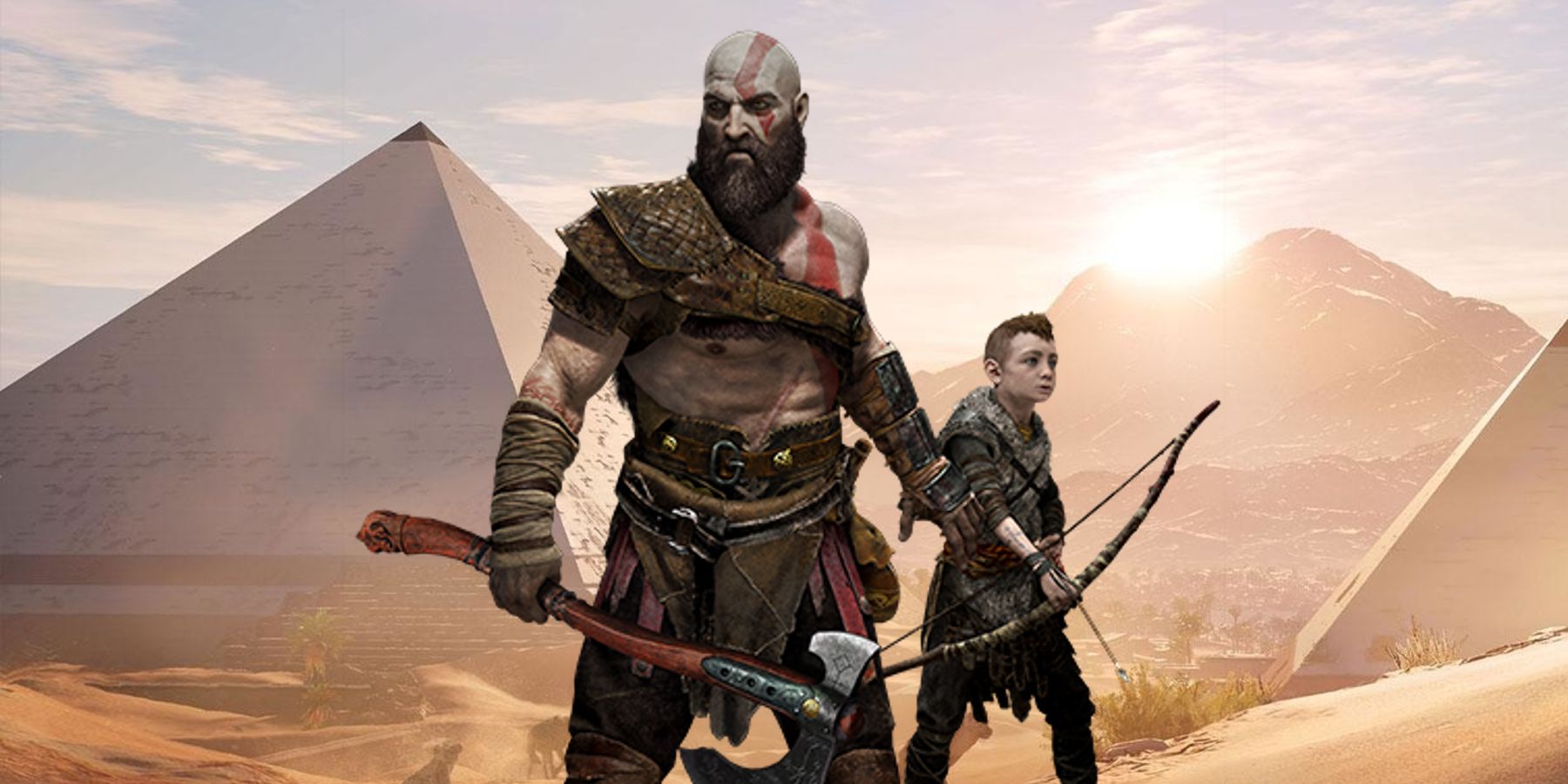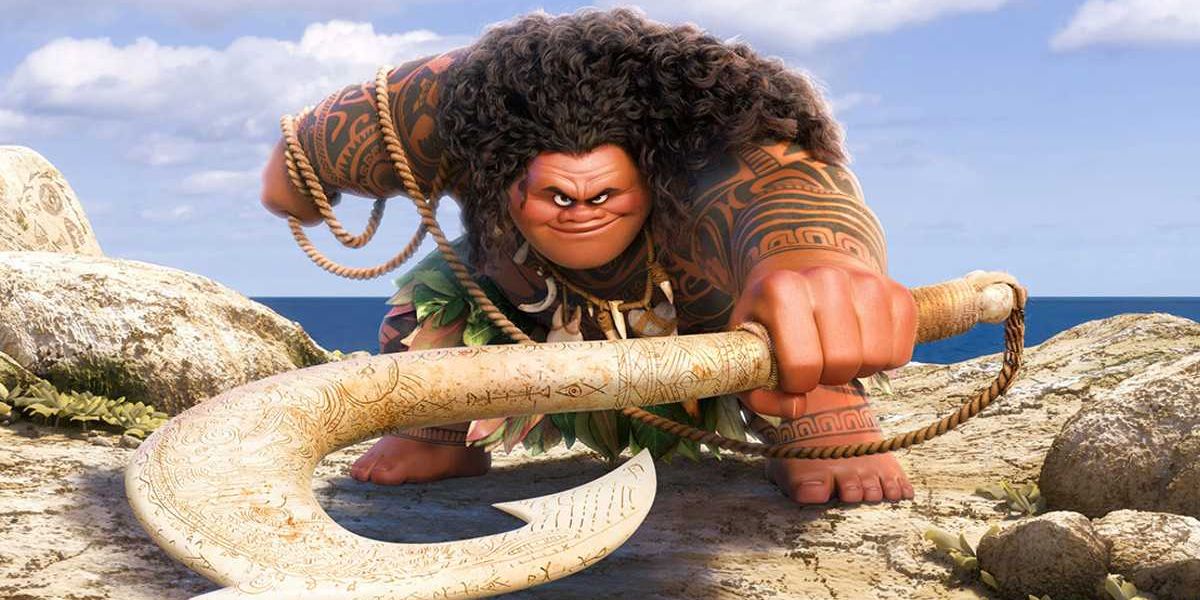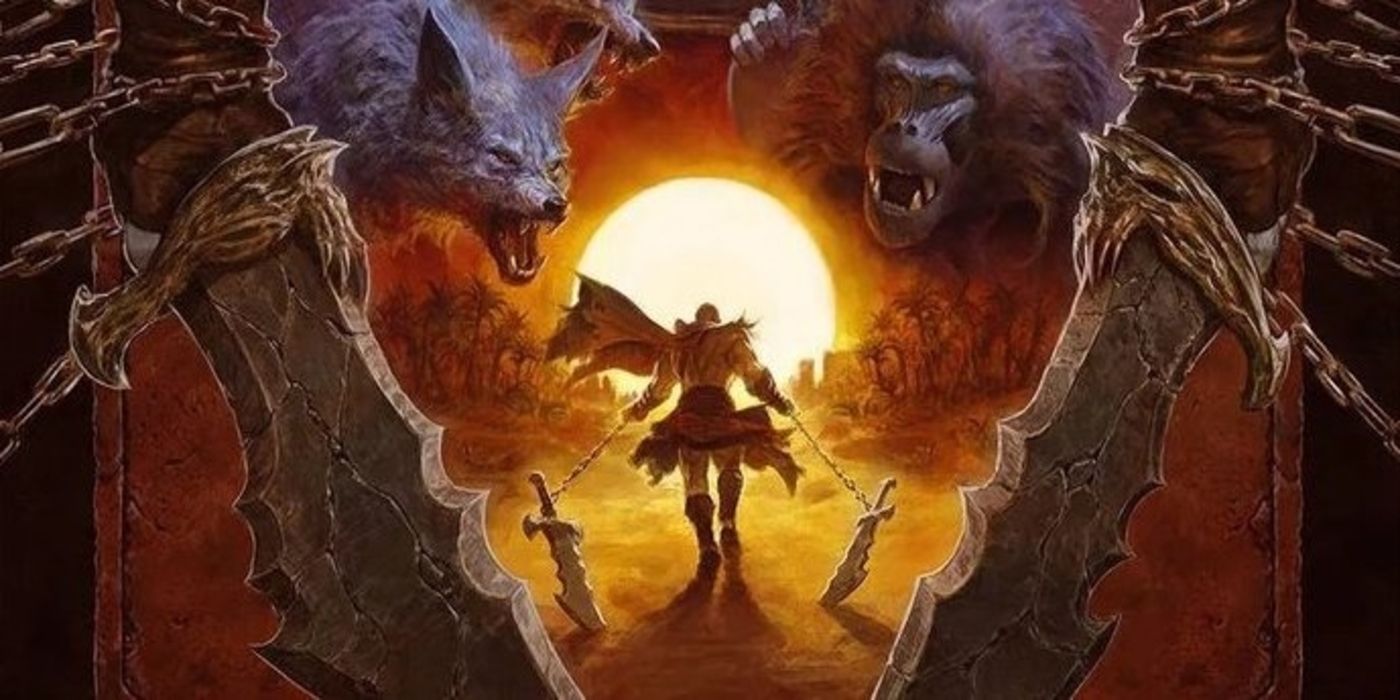Santa Monica Studio’s decision to preemptively announce that Kratos and Atreus’ time in Norse mythology is about to end has thrown the God of War series' future into doubt, as many fans were expecting the current chapter of the story to play out over a three-part arc. However, when God of War: Ragnarok lands on PS4 and PS5 later this year, it will mark the end of an era.
No matter how Kratos and Atreus’ efforts to stop the apocalypse go, Santa Monica Studio’s series will move on from its Norse backdrop after God of War: Ragnarok. Thanks to the sheer commercial and critical value that the series represents for Sony, though, it’s hard to envision the upcoming game being the final one fans get. That means a new mythology, story, and general style of doing things will be needed at some point in the future. Fortunately for all involved, there are plenty of options that would be perfect.
God of War’s Conceptual Future
Before Santa Monica Studio decides on the physical direction that the God of War series will go after Ragnarok, it’s going to need to figure out the manner in which it will undertake that journey. Regardless of the ultimate destination, a new playable protagonist should be part of where it goes next. It would be an undeniably bitter-sweet prospect for many fans, but the time will likely be right at the end of the upcoming game for Atreus to become the next saga’s main focus.
When God of War: Ragnarok's credits roll, it’s worth keeping in mind that Kratos will have spearheaded 10 mainline games. With the character currently attempting to atone for his past, keeping the Greek god of war in the picture would limit where Santa Monica Studio could go from a narrative perspective. The more time goes by, the harder it is to see Kratos taking up a believable role in a story that will inevitably tackle grizzly themes. It would likely be a challenge getting fans to accept Atreus at the helm, but the possibilities are arguably far greater if Santa Monica goes down that particular route.
In terms of gameplay mechanics and cinematography, the next entry in the God of War franchise should still look and feel like the outgoing Norse saga. After all, in the grand-scheme of things, the current gameplay loop and one-shot camera style are both relatively new occurrences. Tackling a new pantheon and main character would likely allow Santa Monica Studio to freshen things up just enough while still giving fans more of what they’re likely to be craving as well.
Egyptian Mythology
Thanks to Santa Monica Studio’s decision to cap its Norse saga at just two entries, there’s an extensive list of places where God of War could travel to after Ragnarok. It’s estimated that over one hundred mythologies have been worshiped throughout human history, so the possibilities are extensive. Only the Roman pantheon is likely to be off limits from an ancient perspective, thanks largely to the narrative similarities it shares with Greece’s past. It’s worth keeping in mind that the studio is also likely to avoid active contemporary religions that have faced backlashes after similar adaptations, such as Christianity and Judaism.
With that context in mind, it’s easy to imagine ancient Egypt and its pantheon of gods and monsters being the prime candidate destination-wise. Beyond the fact that fans have been clamoring for an Egyptian God of War game for decades at this point, the whole mythology represents an opportunity for Santa Monica Studio to create a game that’s truly unique. From just a visual perspective alone, the North African nation is unlike anything that the studio has brought to life before.
By far the biggest attraction of ancient Egypt is its diverse array of unique gods and monsters. For centuries, human-hybrid deities such as Osiris, Anubis, and Ra, have captured human imaginations. Unlike the other mythologies that the God of War series could tackle, the ancient Egyptian pantheon has an almost otherworldly feel to it. Its gods tend to be complex from both a personality and power-perspective. In terms of gameplay, that combination has a lot of potential when it comes to the boss fights and encounters that have often defined the series.
While creating God of War 2018, Santa Monica Studio contemplated heading to ancient Egypt before Northern Europe. Norse mythology was picked instead, though, as the studio felt its isolated wilderness was better suited to the version of Kratos it wanted to explore. Tackling Egyptian mythology now would be an ideal challenge and opportunity for it to address unfinished business. References to Egypt have been inserted into the series since its inception, and a comic-book tie-in set within the region was released in 2021, so a lot of groundwork has already been done.
Other Mythological Options
While there’s a strong case for ancient Egypt to be the next destination that the God of War series should visit, there are several other options that would be equally viable and worthy. Even if Santa Monica Studio opts to venture elsewhere, each should still be considered at some point in the future. Gods and entities from Japan’s Shinto and Buddhist religions will likely be more viable further down the road, for example, once Sony’s Sucker Punch Productions has moved on from its examination of the region’s culture in Ghost of Tsushima.
In recent years, the vibrant Polynesian mythology of the Central and South Pacific has frequently been explored in other forms of media. As it stands right now though, deities like Maui haven’t really made the transition over from Hollywood into the realm of gaming. There’s still a large gap when it comes to representation that Santa Monica Studio should seriously think about addressing soon. Visually, geographically, and narratively, Polynesian mythology is packed with locations and characters that would likely impress fans as well.
Even though there are several European mythologies that could also be explored in the future, it’s easy to imagine most being comparatively low on Santa Monica Studio’s bucket list. While there’s no denying that Celtic mythology and its druid magic would be appealing for example, it’s time for the world’s other continents and deities to be given a chance in the spotlight. Chinese, Aztec, and Hindu mythology should all be given serious consideration, as they’d each take the God of War series in interesting and unique directions.
The Multiverse Approach
Since the God of War franchise’s debut on the PS2 in 2005, Santa Monica Studio has approached its source material in an almost one-dimensional way. Focusing on a single pantheon at a time has allowed it to explore most of what the ancient Greek and Norse world has to offer. However, there’s no reason why it should necessarily stick to this approach after Ragnarok. It could get through several mythologies quicker than it might like, but taking the multiverse approach would benefit the series on multiple fronts.
Instead of adapting ancient Egyptian mythology all on its own, Santa Monica Studio should consider introducing more mythologies into the mix at the same time. With the fall of the Norse-world seemingly on the cards in God of War: Ragnarok, two of the Earth's ancient group of gods will likely have perished by the end of the game. In what’s already been established to be an interconnected world, that kind of gap is naturally going to have a direct impact on the stability of every other pantheon.
Conflict between multiple sets of gods would make sense from a narrative perspective, and could give a character like Atreus new motivations. Having seen his own world torn apart, there’d be an opportunity for the demigod to atone for his ancestors' mistakes. Thanks to the efforts of Marvel, for example, players will already be familiar with the concept of the multiverse and the epic crossovers it can create. The studio has already introduced the mythology-hopping Tyr to the mix for added measure, so the door that leads to where the series goes next has been left wide-open.
God of War: Ragnarok is scheduled to release this year on PS4 and PS5.

